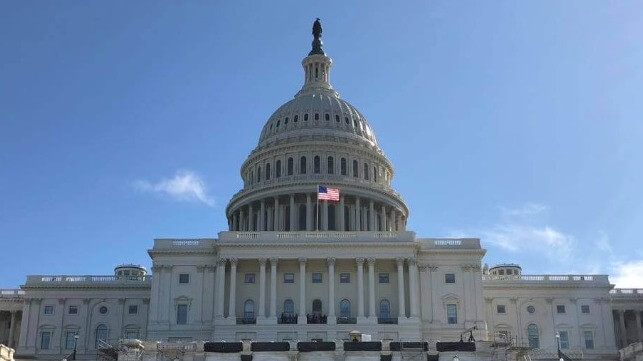Ocean Shipping Reform Act to Strengthen FMC Reaches U.S. Senate

The U.S. Senate is set to take up reform of the federal regulations for the global shipping industry focusing on the challenges that American exporters have been experiencing due to port congestion and disruptions in the global supply chain. On Thursday, Senators John Thune of South Dakota and Amy Klobuchar of Minnesota introduced the Ocean Shipping Reform Act following the U.S. House of Representatives passage of its version of the bill in December 2021. The bill, which represents the first reform of the Federal Maritime Commission and its authorities in decades, has already met with strong criticism from the shipping industry.
The Senate version of the bill, which has wide support from a broad coalition from the agricultural sector as well as manufacturers and related businesses such as trucking, is similar to the House version that passed with a strong partisan vote. According to the senators, the bill would level the playing field for American exporters by making it harder for ocean carriers to unreasonably refuse goods ready to export at ports, and it would give the FMC greater rulemaking authority to regulate the carriers’ business practices.
“Congestion at ports and increased shipping costs pose unique challenges for U.S. exporters, who have seen the price of shipping containers increase four-fold in just two years. Meanwhile, ocean carriers have reported record profits,” said Klobuchar. “This legislation will level the playing field by giving the Federal Maritime Commission greater authority to regulate harmful practices by carriers and set rules on what fees carriers can reasonably charge shippers and transporters.”
Among the specific provisions contained in the draft are rules to prohibit ocean carriers from “unreasonably” declining U.S. exports. The FMC would be given greater authority to oversee the export practices as well as to register the shipping exchanges focusing on contract negotiations. The FMC would also be able to self-initiate investigations into the business practices of the carriers as well as enforcement actions. To create greater transparency, carriers would be required to report quarterly to the FMC on their import and export volumes and the number of containers brought to the U.S. on each vessel.
“Producers across America are paying the price,” said Thune arguing that ocean carriers do not operate under fair and transparent rules. “The improvements made by this bill would provide the FMC with the tools necessary to address unreasonable practices by ocean carriers, holding them accountable for their bad-faith efforts that disenfranchise American producers.”

that matters most
Get the latest maritime news delivered to your inbox daily.
The World Shipping Council lobbying on behalf of ocean carriers was quick to renew its criticism of the efforts. “The deeply flawed bill passed by the House at the end of last year would place government officials in the role of second-guessing commercially negotiated service contracts and dictating how carriers operate ship networks – an approach that would make the existing congestion worse and stifle innovation,” said John Butler, President & CEO of the WSC.
Butler contends that “when ships cannot get into port to discharge and load cargo because of landside logistics breakdowns, it is clear that further regulating ocean carriers will not solve the deeper challenges in U.S. supply chains.” He argues that carriers have deployed every available ship and container to move the record levels of cargo. The World Shipping Council says it hopes to work with Congress to seek real solutions that further strengthen the ocean transportation system.
